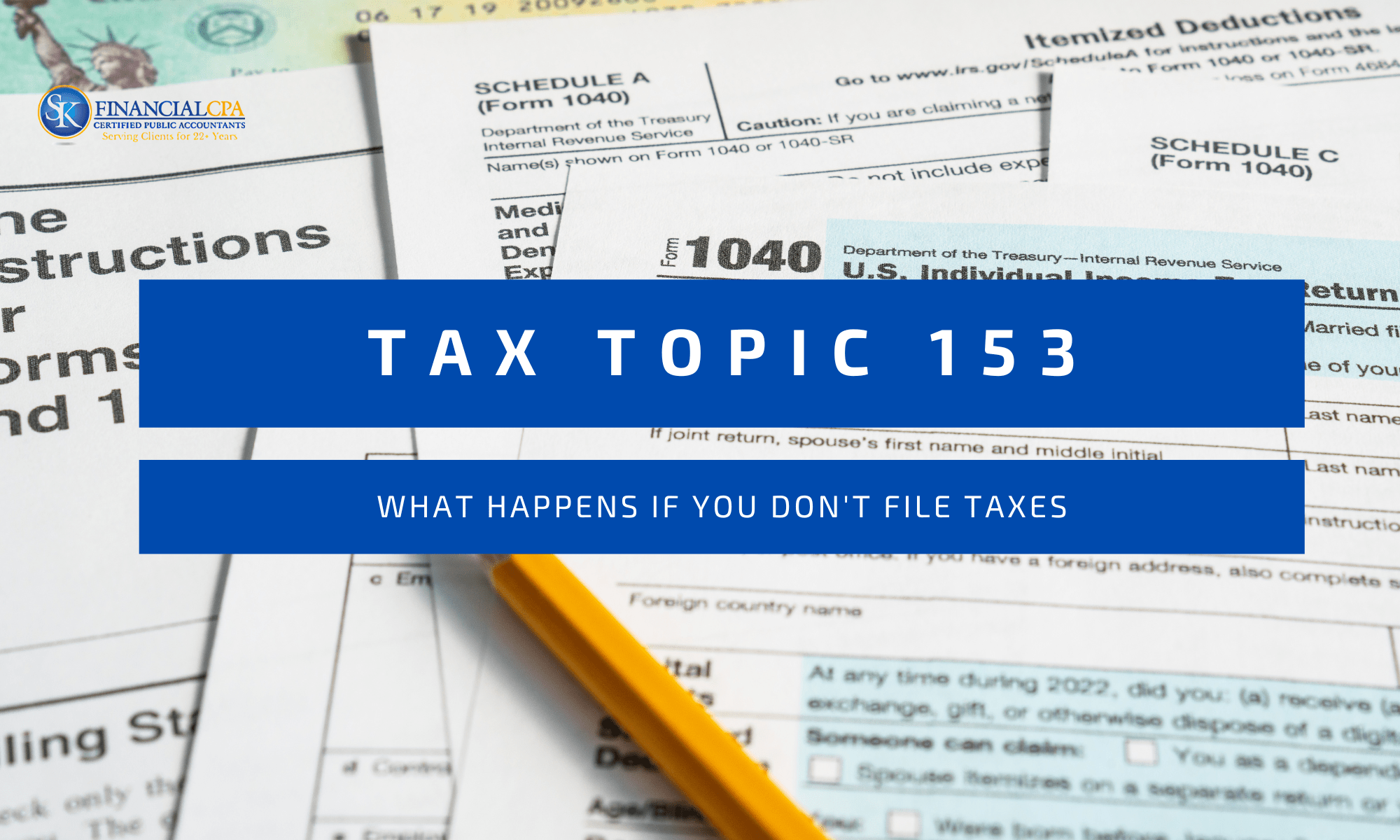
What happens if you don't file your taxes? In 2026, a detailed Guide
If you don’t file your taxes, you could face IRS penalties, growing interest, lost refunds, and even legal action. The longer you wait, the worse it gets. This 2026 guide explains what happens when you don’t file, how the IRS responds, and what steps you can take to fix it.
What happens if you don't pay taxes?
Not paying taxes after filing can also trigger penalties, interest, and IRS collections. They may:
-
Garnish your wages
-
Seize assets or freeze bank accounts
-
File a lien against your property
Tip: Even if you can’t pay the full amount, file your return on time. The penalty for not filing is much higher than for not paying.
Learn about What do taxes pay for
What are Legal and Financial Ramifications For Not Filing Taxes?
The IRS doesn’t ignore missing returns. It tracks your income through W-2s and 1099s. If you skip filing, they’ll eventually notice and start adding penalties.
-
Failure-to-file penalty: 5% of unpaid taxes per month (up to 25%).
-
Failure-to-pay penalty: 0.5% per month until paid.
-
Interest: Charged daily on both taxes and penalties.
Example: If you owe $3,000 and wait six months to file, penalties and interest could add over $500 to your bill.
Immediate Penalties and the Accumulation of Debt
Failure-to-File and Failure-to-Pay Penalties:
The Internal Revenue Service (IRS) levies significant penalties for not filing taxes. The failure-to-file penalty can reach 5% of the unpaid taxes for each month or part of a month that the return is late, up to a maximum of 25%. The failure-to-pay penalty is 0.5% per month on the amount of taxes owed. These penalties highlight the financial consequences of not filing taxes and the importance of filing even if you can't pay the full amount due.
Interest on Unpaid Taxes:
In addition to penalties, interest accrues on both the unpaid tax amount and any penalties assessed. This can substantially increase the total amount owed over time, exacerbating the financial strain of not filing taxes.
Severe Legal Actions and Their Implications
a. IRS Liens and Levies
The IRS can place a lien on your property or levy your bank account or wages to recover unpaid taxes.
Example: The IRS can contact your employer directly to garnish part of your paycheck until your tax debt is cleared.
b. Loss of Refund
If you don’t file within three years, you lose the right to claim your refund — even if the IRS owes you money.
c. Possible Criminal Charges
Repeatedly ignoring tax filings may lead to tax evasion charges, fines up to $250,000, and even 5 years in prison. While rare, the IRS does prosecute willful non-filers to set examples.
Broader Impacts of Not Filing Taxes
a. Impact on Loans and Mortgages
Lenders require recent tax returns to verify income. Not filing can make it impossible to get approved for loans, mortgages, or business funding.
b. Impact on Credit
The IRS doesn’t report debt directly to credit bureaus, but liens or levies can still appear in your financial records hurting your credit and borrowing power.
Example: According to IRS data, millions of taxpayers lose refunds yearly due to unfiled returns, and some face liens that stay on their record for 7+ years.
Strategies for Resolving Non-Filing Issues
You can still fix unfiled taxes. Here’s how:
Step 1: File overdue returns.
File any missing returns as soon as possible. This stops late penalties from growing.
Step 2: Contact the IRS.
If you owe money, ask about payment plans or penalty relief programs. The IRS prefers cooperation over silence.
Step 3: Get professional help.
A CPA or tax attorney can guide you through back filings and communicate with the IRS on your behalf.
Conclusion
Ignoring taxes doesn’t make the problem go away it only makes it more expensive. Whether you missed one year or several, filing now is always better than waiting. With help from a tax professional and clear communication with the IRS, you can stop penalties, protect your assets, and regain control of your finances.
FAQs
1. What happens if you don't file taxes for one year?
You’ll face IRS penalties and interest until you file. The longer you wait, the more you’ll owe.
2. What if you don't file and owe money?
The IRS can file a lien, garnish wages, or seize assets to collect unpaid taxes.
3. What if you don't file but don’t owe anything?
You might miss a refund. File within three years to claim it after that, it’s gone.
4. What if you don’t file for multiple years?
Penalties stack up, and the IRS may take stronger legal action or file a substitute return for you.
5. What if you don’t file and expect a refund?
You must file within three years to receive it. After that, the IRS keeps the money.
6. Can not filing taxes affect loans or mortgages?
Yes. Lenders require recent tax returns for income verification.
7. How can I fix unfiled taxes?
File overdue returns, contact the IRS for payment options, and get help from a tax professional.
Follow SKFinancial on Facebook / Twitter / Linkedin / Youtube for updates.














